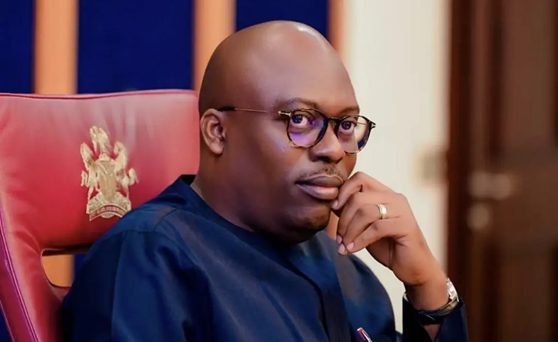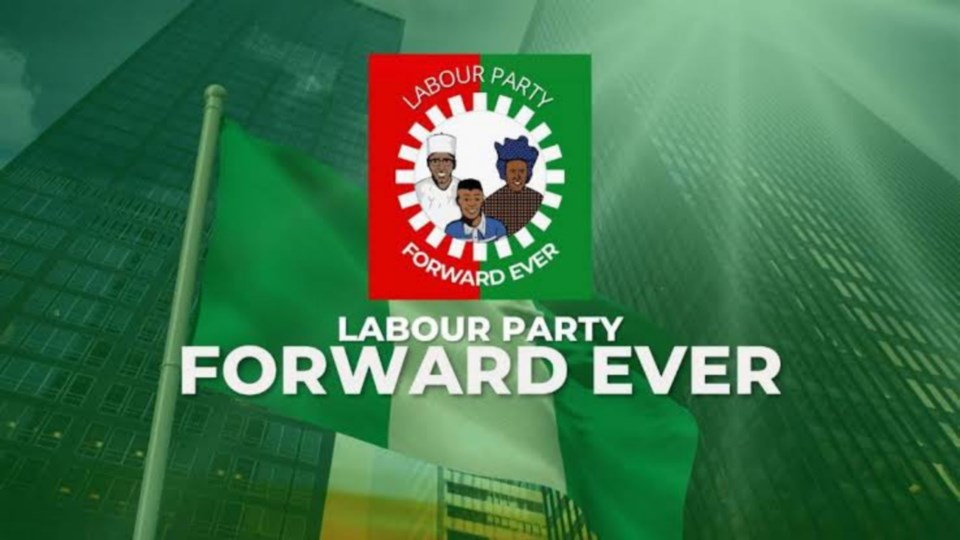Headlines
Magu Fingers Presidential Villa, Ministries, Others As Buyers of Recovered Vehicles

The suspended acting Chairman of the Economic and Financial Crimes Commission, Ibrahim Magu, says some of the vehicles recovered by the EFCC were auctioned to the Presidential Villa, the Ministry of Humanitarian Affairs, Disaster Management and Social Development as well as the Federal Inland Revenue Services and other agencies.
He further stated that some of these agencies had not paid for the vehicles but there was an arrangement that the money would be deducted from their financial allocation.
Magu, in a letter addressed to the Justice Ayo Salami-led panel titled, ‘Re: Alleged Case of Conspiracy, Enrichment, Abuse of Public Office and Other Infractions,’ explained how some of the recovered vehicles were auctioned.
The letter was in response to an earlier report by the Presidential Committee on Audit of Recovered Assets in which Magu was accused of being unable to account for the interest accrued to N550bn recovered funds as well as recovered vehicles and houses.
In his response to the allegations of being unable to account for recovered vehicles, Magu stated, “On allocation of vehicles to some government agencies through special auction with presidential approval. The beneficiary agencies are: the Ministry of Humanitarian Affairs and Disaster Management of which the valued price is to be debited from their allocation; State House, National Commission for Refugees and Displaced Persons; Federal Inland Revenue Service and National Directorate of Employment.”
The suspended EFCC boss said about 450 other vehicles, which had been recovered, had yet to be sold despite receiving presidential approval to do so.
“The commission presently has presidential approval to dispose over 450 forfeited vehicles located in Lagos and Abuja. The vehicles have been valued by the National Automotive Council Valuers and the Federal Ministry of Works and Housing. But no sale/disposal has been conducted yet,” Magu stated.
He said some of the houses permanently forfeited to the Federal Government by looters had also been handed over to some government agencies like the Voice of Nigeria, North -East Development Commission and the Pension Transitional Arrangement Directorate.
The suspended EFCC boss explained that some other properties, which had been forfeited pending the outcome of court cases, were being rented by the Federal Ministry of Finance, the Nigerian Army and other agencies of government.
The letter further read, “Real properties finally forfeited to the Federal Government of Nigeria and allocated to some agencies for official use in line with the Presidential approval are: Voice of Nigeria, National Directorate of Employment, Ministry of Humanitarian Affairs and Disaster Management, North East Development Commission and Pension Transitional Arrangement Directorate.
“Properties under interim forfeiture order are rented by the following government agencies: Nigerian Army, Federal Ministry of Finance, Fiscal Responsibility Commission, Nigerians in Diaspora Commission and Federal Airports Authority of Nigeria.
“Other agencies of government that have approached the commission to rent properties under interim forfeiture order include: National Human Rights Commission and National Council for Arts and culture.”
Magu said the commission also temporarily handed over property in Lagos to the Lagos State Government for use as isolation centres for COVID-19 patients.
The suspended EFCC boss attached photographs of some of the recovered assets to the letter he addressed to the panel.
However, it was learnt that an attempt by Magu’s lawyer, Wahab Shittu, to submit the letter to the panel on Monday was rebuffed.
The panel was said to have insisted that there was no basis for the letter and informed Shittu that Magu would be summoned if there was a need for clarification.
“An attempt to submit the letter to the secretary of the panel on Monday failed. Magu’s team was informed that the panel does not entertain letters but it is purely an investigative one. If there is a need for clarification, Magu would be invited,” a source said.
The Punch
Headlines
Tinubu Approves Posting of Ambassadors-designate to US, UK, Others

President Bola Tinubu has approved the posting of four ambassador-designates out of the 68 confirmed by the Senate last December.
The approvals were conveyed in a statement signed by Bayo Onanuga, Special Adviser to the President on Information and Strategy, dated January 22, 2024.
According to the statement, Ambassador Ayodele Oke has been posted as ambassador-designate to France, while Colonel Lateef Are has been posted as ambassador-designate to the United States of America.
Also confirmed by the President is the posting of Ambassador Amin Dalhatu, former ambassador to South Korea, as the high commissioner-designate to the United Kingdom.
Usman Isa Dakingari Suleiman, former governor of Kebbi, is the ambassador-designate to Turkey, where the President is scheduled to begin a state visit next week.
In a memo to the Ministry of Foreign Affairs, President Tinubu urged the ministry to notify the governments of the four countries about the ambassador-designates, in accordance with diplomatic procedures.
Headlines
Fubara’s Impeachment Suffers Setback As Judge Rejects Invitation to Set Up Probe Panel

The Chief Judge of Rivers State, Justice Simeon Amadi, has declined to set up a judicial panel to investigate Governor Siminalayi Fubara, citing a court order.
The Rivers State House of Assembly had requested that Amadi set up a seven-member panel to probe Fubara and his deputy, Ngozi Odu, over allegations of gross misconduct.
However, in a letter dated January 20 and addressed to the Speaker of the House, Martins Amaewhule, the chief judge cited two court orders barring him from receiving, forwarding, or considering any requests to form such a panel.
The judge stated that the orders were served on his office on January 16, 2026 and remain in force.
The chief judge emphasised that constitutionalism and the rule of law require all authorities to obey subsisting court orders, irrespective of their perception of the orders’ validity.
He referenced legal precedents, noting that in a similar case in 2007, the Chief Judge of Kwara State was condemned for ignoring a restraining court order when setting up an investigative panel, a decision later voided by the Court of Appeal.
Justice Amadi further observed that the Speaker has already filed an appeal against the court orders at the Court of Appeal, adding another layer to the ongoing legal proceedings surrounding the allegations.
“By the doctrine of ‘lis pendens’, parties and the court have to await the outcome of the appeal,” he said.
Justice Amadi further stated that the existence of the injunctions and the pending appeal had effectively tied his hands.
“In view of the foregoing, my hand is fettered, as there are subsisting interim orders of injunction and appeal against the said orders. I am therefore legally disabled at this point from exercising my duties under Section 188(5) of the Constitution in the instant,” he said.
The chief judge appealed to the lawmakers to recognise the legal constraints surrounding the matter.
Justice Amadi, therefore, urged the state assembly to be “magnanimous enough to appreciate the legal position of the matter.”
Headlines
LP: Court Affirms Abure’s Sack, Orders Recognition of Nenadi’s Leadership

The Federal High Court sitting in Abuja has reportedly affirmed the removal of Julius Abure as the national chairman of the Labour Party, LP.
The Court also ordered the Independent National Electoral Commission, INEC, to recognize the Senator Nenadi Usman-led National Caretaker Committee as the party’s lawful leadership.
The development was disclosed by human rights lawyer, Inibehe Effiong, in a post on X, where he said he was present at the Federal High Court when the judgment was delivered in a related case.
Effiong stated that Justice Lifu delivering judgment on Wednesday, upheld the Nenadi Usman-led committee as the only valid and lawful leadership of the Labour Party, reaffirming that Abure’s tenure had elapsed in line with an earlier Supreme Court judgment.
The court consequently directed INEC to immediately recognize Nenadi Usman as the party’s leader.
He wrote: “I am currently before the Federal High Court in Abuja for a case. I listened to judgement delivered in an another case.
“Honourable Justice Lifu has just upheld Senator Nnadi Esther Usman-led National Caretaker Committee as the only valid and lawful leadership of the Labour Party.
“The Judge reaffirmed that by the Supreme Court’s judgement, Julius Abure’s tenure had since elapsed.






